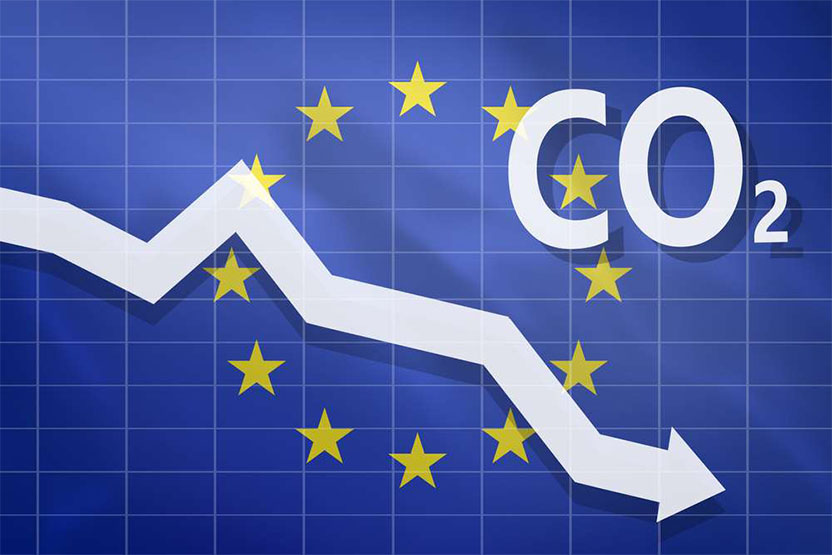
The European Union is weighing a potential adjustment to its 2040 climate goals, according to a draft proposal seen by Reuters, amid growing concerns that European forests may not absorb enough carbon dioxide to meet existing emission reduction targets.
The draft, discussed ahead of a November 4 meeting of EU climate ministers, includes a new clause that would allow the bloc to revise its 2040 emission target downward if data show that forests and land-use activities fail to capture sufficient CO₂. The meeting is seen as critical for ensuring that European Commission President Ursula von der Leyen arrives at next week’s COP30 global climate summit in Brazil with a credible, unified position.
A Climate Target Under Pressure
The European Commission has previously called for a 90% reduction in greenhouse gas emissions by 2040 compared to 1990 levels — an ambitious milestone on the path to climate neutrality by 2050. However, some EU countries, facing pressure from struggling industries and rising energy costs, have pushed for greater flexibility.
The latest compromise draft introduces a new safeguard mechanism: if forests and other land-based carbon sinks fall short, Brussels could propose a “technical adjustment” to the 2040 target, aligning it with the estimated shortfall. The text also suggests that the EU could introduce additional forestry measures to bring carbon absorption back on track rather than automatically revising the goal.
This clause mirrors a French proposal from last week calling for an “emergency brake” — a temporary reduction of the 90% target by up to 3 percentage points if forest carbon absorption remains insufficient.
European forests, once considered a reliable carbon sink, have lost roughly one-third of their CO₂ absorption capacity over the past decade, according to EU data. The decline stems from increasing wildfires, pests, and unsustainable forest management practices, particularly in Southern and Eastern Europe.
This weakening of natural carbon sinks poses a significant challenge to the EU’s climate policy, which relies heavily on forests and soil to offset remaining emissions in hard-to-abate sectors like agriculture and aviation.
Earlier negotiation drafts had already hinted that member states were considering biennial reviews of the 2040 target, effectively allowing adjustments every two years — a move some climate advocates warn could water down the EU’s long-term ambitions.
Another contentious issue expected to dominate next Tuesday’s meeting is how much of the 90% reduction can be achieved through foreign carbon credits. Several countries argue that buying international offsets would give industries more flexibility, while environmental groups counter that it risks outsourcing Europe’s decarbonization efforts.
To pass, the proposal must secure the backing of at least 15 of the EU’s 27 member states, representing 65% of the bloc’s population — the standard threshold for a qualified majority.
Denmark, which currently holds the EU’s rotating presidency and drafted the latest compromise, said the negotiations are entering their decisive phase.
“All the necessary components are now in place for an agreement,”
a Danish spokesperson told Reuters.
If adopted, the new framework would reaffirm the EU’s leadership role in climate diplomacy ahead of COP30, even if it slightly weakens its ambition.
The Road to COP30 in Brazil
Beyond Europe, COP30 — to be held in Belém, in the heart of the Amazon rainforest — will bring together nations to present their updated Nationally Determined Contributions (NDCs) under the 2015 Paris Agreement. These national climate plans outline how each country intends to reduce emissions and adapt to the consequences of global warming, with the overarching goal of limiting temperature rise to below 1.5°C.
Under the Paris framework, countries must update their NDCs every five years, each time with higher ambition. The EU’s internal debates, therefore, carry global implications: any weakening of its 2040 target could signal to the world’s major emitters that flexibility — not urgency — defines the next phase of climate governance.
For now, Brussels faces a delicate balancing act: preserving its climate credibility while accommodating member states worried about economic competitiveness. Whether the EU chooses to stand firm or adjust its goals, its decision this week will resonate far beyond Europe — from the corridors of power in Brasília to the fragile ecosystems of the Amazon.


Comment